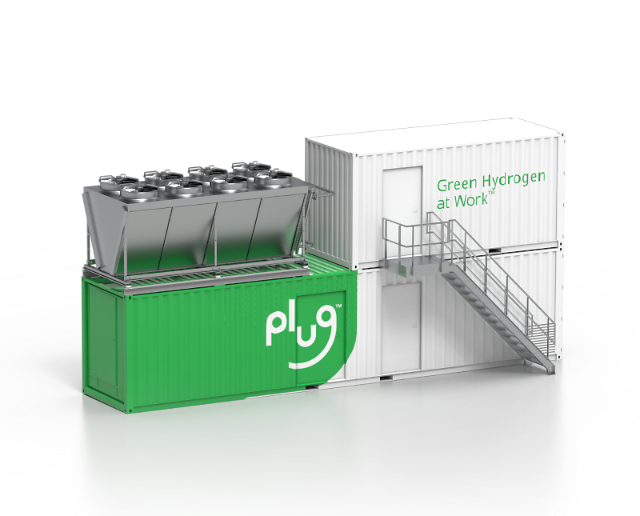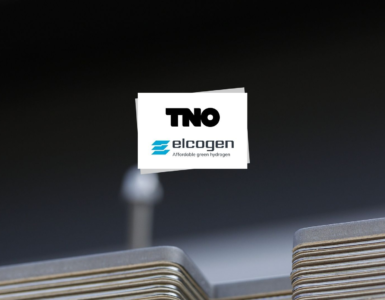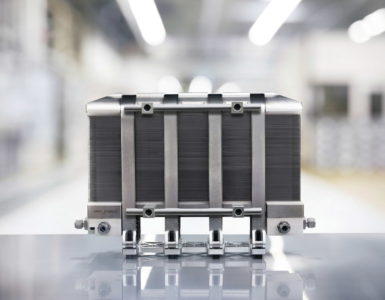Plug Power joint venture with SK E&S supplies water electrolysis equipment for green hydrogen project.
A joint venture between Plug Power, an American provider of hydrogen fuel cell turnkey solutions, and its South Korean partner, SK E&S, will supply polymer electrolyte membrane water electrolysis equipment for a state project to verify the efficiency and safety of a green hydrogen and battery storage system.
Water electrolysis technology decomposes water with electricity to produce hydrogen. Hydrogen companies have been testing various methods to improve water electrolysis technologies to effectively produce hydrogen because of its high production costs.
The joint venture named SK Plug Hyverse signed a contract with Korea Gas Corporation (KOGAS) to supply a 1.0-megawatt PEM water electrolysis facility that uses a wind power plant to produce green hydrogen and supply it through a charging station on the southern island of Jeju.
Polymer electrolyte membrane (PEM) fuel cells are mainly used for transport applications and small-sized power generation facilities as they operate in relatively low temperatures. PEM consists of a polymer electrolyte membrane sandwiched between a positive electrode (cathode) and a negative electrode (anode).
Lee Ji-young, SK Plug Hyverse CEO said in a statement on May 31:
This Jeju Island demonstration project will be the first step toward localizing water electrolysis facilities and entering overseas water electrolysis markets where high growth is expected in the future.
SK E&S said that the project in Jeju laid the foundation for the localization of water electrolysis facilities and the expansion of overseas markets based on Plug Power’s excellent technology. The company said it would nurture SK Plug Hyverse as South Korea’s largest green hydrogen supplier.
SK Plug Hyverse will build a major plant in the western port city of Incheon to produce fuel cells and water electrolysis facilities targeting Asian markets. Production is to begin in 2024. The joint venture “Giga” factory is aimed at supporting Incheon’s plan to revitalize hydrogen public transportation and use hydrogen for all 2,000 city buses by 2030.
Despite hydrogen cars’ eco-friendly characteristics, hydrogen cars have been shunned by South Korean consumers due to a lack of charging infrastructure and a general perception that such stations could explode.
Using Plug Power’s know-how in operating and distributing liquefied hydrogen charging stations, the joint venture will distribute liquefied hydrogen to charging stations.
South Korea is investing heavily to utilize hydrogen fuel cells as a new power source. Hydrogen fuel cells use hydrogen as fuel to produce electricity. Small-sized cells are installed in eco-friendly vehicles such as full-size sport utility vehicles while larger cell systems are used in hydrogen power generators.
Because hydrogen fuel cell power generation systems are much smaller than thermal power plants or hydropower plants, they are ideal for providing power to microgrids, which are networks of small, isolated smart power grids, in urban environments.
PEMs can be applied to stationary and portable fuel-cell applications due to their high energy efficiency, simple structure and excellent durability.
Plug Power’s joint venture with SK E&S supplies water electrolysis equipment for green hydrogen project, Seoul, May 31, 2022









